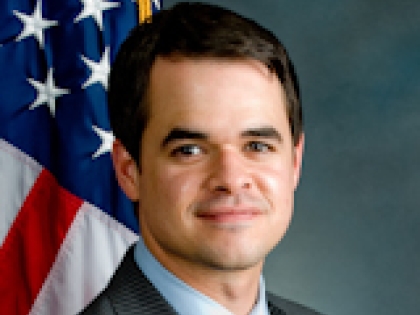
Senator Carlucci Calls for Passage of Lyme Disease Legislation to Expand Coverage, Education Initiatives
David Carlucci
September 13, 2013
-
ISSUE:
- Health

NEW CITY – In response to alarming statistics and a recent CDC report showing a much higher prevalence of Lyme disease cases, Senator David Carlucci (D-Rockland/Westchester) today announced a 3-point legislative package that will make treatment options more affordable; expand research for treatment, detection, and prevention; and require professionals to complete continuing education courses of Lyme disease.
At a press conference at Kennedy Dells Park, Senator Carlucci was joined by renowned Lyme disease physician Dr. Daniel Cameron and New City resident Allison Harvey, who discussed her story and ongoing battle with symptoms related to Lyme disease..
“Lyme disease has become a national public health problem that we can no longer take lightly,” said Senator Carlucci. “We should take every measure at the state level to aggressively combat this growing problem. By funding more research initiatives, promoting education, and expanding insurance coverage, we will not only lower the amount of cases of these tick-borne illnesses, but also improve the quality of health among those living with this dreadful illness.”
Expanding Coverage
The first bill (S.3478-A), commonly referred to as the Tick-Borne Illness Treatment and Education Act of 2013 (“TickBITE Act”), would require health insurers to provide adequate coverage for long-term medical care of Lyme disease and other tick-borne related pathogens. It also increases public awareness and community outreach campaigns to prevent tick bites, understand symptoms, and provide funding and charitable donations for research efforts.
Educating Professionals
A second bill recently drafted by Senator Carlucci would require health professionals to take a continuing education course on Lyme disease every four years to stay up to date with the latest research and treatment options available. Under the proposal, the New York State Department of Health's Institute for Tick-Borne Disease would be tasked with approving such courses that offer this type of training.
Protecting Doctors
The third bill (S.5520-A) would make it easier for doctors to effectively treat chronic Lyme disease. It would authorize doctors to use antibiotics as a therapeutic long-term treatment option for their patients. Since this course of treatment can be costly, insurance companies have routinely tried to make this as difficult to administer as possible. Doctors will instead be protected from insurance companies and licensing boards that would otherwise subject them to investigations for such antibiotic regiments, or even worse, try to revoke or suspend their medical license altogether.
While there is no definitive testing or treatment available, doctors routinely prescribe antibiotics for patients exhibiting chronic Lyme disease symptoms. In the early stages of Lyme disease, patients treated appropriately usually recover completely. However, 10-20% of patients, many of those diagnosed much later on, may have long-term symptoms.
According to the CDC, between 1992 and 2011, a combined total of 12,797 Lyme disease cases were reported from Rockland and Westchester counties alone. However, experts have concluded that Lyme disease cases often go under-reported. While more than 30,000 cases of Lyme disease were reported across the country, a new estimate shows the total number of people diagnose with Lyme disease is roughly 10 times higher than the yearly reported number, or as many as 300,000 each year.
County-Level Lyme Disease Cases Reported Over Past Decade | |||||
County | 1992-1996 | 1997-2001 | 2002-2006 | 2007-2011 | Total |
Rockland | 401 | 403 | 980 | 843 | 2,627 |
Westchester | 4724 | 2102 | 2552 | 792 | 10,170 |
Total |
|
|
|
| 12,797 |
# # #
Photo (L to R): Patricia Parke, RN, Rockland County Department of Health, Senator David Carlucci, Lyme disease victim Allison Harvey, and Dr. Daniel Cameron of the Lyme Project at a press conference in New City.
Share this Article or Press Release
Newsroom
Go to Newsroom3/25 Coronavirus Pandemic Latest - Important Information!
March 25, 2020


3/22 Coronavirus Pandemic Update - Please Stay Inside!
March 22, 2020

